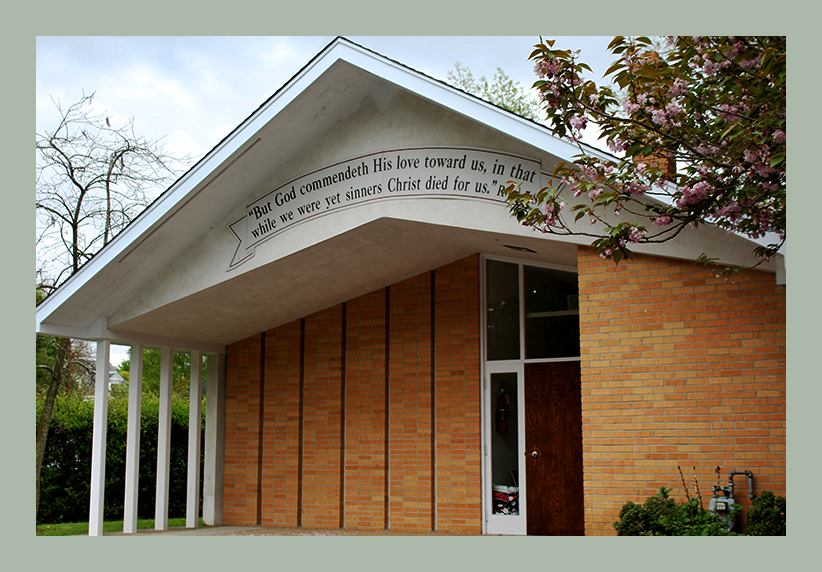- 215-477-3020
- overbrook5834@gmail.com
- 5834 Overbrook Avenue, Philadelphia
We Believe…
There is but one true God, whose Godhead is expressed in three persons: Father, Son, and Holy Spirit. God is all-knowing, all-powerful, and all-present (omniscient, omnipotent, and omnipresent). His character is expressed by both light and love. He abhors sin. He is never taken by surprise, and He is holy, wise, and good, and cannot lie.
[Deuteronomy 6:4; John 10:30; Hebrews 9:14; 1 John 1:5, 4:16;
1 Timothy 1:17; Titus 1:2]
The Bible is verbally inspired by God and therefore is the infallible, inerrant Word of God. As the foundation and only basis for Christian teaching, the Bible thus supersedes any other tradition or teaching, which at its best can be no more than human expression.
[2 Timothy 3:15-17; Isaiah 40:8; 2 Peter 1:20-21]
God personally created the human race, male and female, in His own image. He
desired to have a fellowship-relationship with them, but their disobedience
brought sin into the world. Sin brings death, and therefore both physical and
spiritual death resulted for Adam and Eve and all of their descendants.
[Genesis 3:8-13; Romans 5:12]
Since then, all persons born into the world possess a sinful nature which is
opposed to God, while at the same time possessing a spiritual component to
their being which can only be satisfied by knowing Him.
[Romans 3:10,11,23; Ephesians 2:1-3; Acts 17:27]
The Lord Jesus Christ is fully God and fully man. Though He ever existed as Son
of God in eternity past, a body was prepared for His entrance into the world. As
man, He was conceived by the Holy Spirit and born of the virgin Mary.
[John 1:1,14; 1 John 4:2; Luke 1:34-35]
Jesus did not sin, nor could He have. However, as a substitute on behalf of all
those who trust Him, He sacrificially paid the full penalty for sin when He died
on the cross and shed His blood there. [1 Peter 3:18; Hebrews 9:26]
His death was real, as was His bodily resurrection on the third day after His
burial. He is now ascended to and seated at the right hand of the Father and is
our High Priest and Advocate.
[1 Corinthians 15:3-4; Hebrews 4:14-16; 1 John 2:1]
Since God’s standard is perfection, people marked by sin can never attain
heaven on their own merits. Good works or a moral lifestyle can never earn
salvation.
[Romans 3:20,23; Isaiah 64:6]
Instead, salvation is a free gift of God’s grace, received through a personal faith
in Jesus Christ as the Son of God and as the Redeemer from the penalty of sin.
The sacrificial death of Christ was fully complete. Therefore, once granted,
salvation and eternal life can never be lost, and believers can have certainty of
their acceptance before God.
[Ephesians 2:8-9; Hebrews 10:14; John 10:28; 1 John 5:13]
Man’s eternal destiny is solely determined by his acceptance or rejection of
Jesus Christ.
[John 3:36]
God the Holy Spirit produces new life and places every believer into the Body of
Christ. He permanently indwells every believer. The evidence of this indwelling
rests not in some spectacular event or spiritual gift, but solely in the authority of
God’s Word.
[1 Corinthians 12:13; John 16:13-14; Romans 8:9, 16]
Through the Spirit, Christ gives spiritual gifts to every believer, but these gifts
do not call attention to the Holy Spirit, nor the recipient. Rather, spiritual gifts
equip Christians to serve God by building up fellow believers, just as the various
parts of a body contribute to the development of the body itself.
[1 Corinthians 12:11; Ephesians 4:7-13, Romans 12:3-8]
While Jesus Christ is absent, the Christian testimony in the world is known
collectively as His Church. Locally, Christians who are gathered together unto
the name of the Lord Jesus seek to express that same testimony.
[Ephesians 1:22-23; 2:19-22; 1 Peter 2:5-6; 1 Corinthians 1:2]
Just as Christ is sufficient as the only way of salvation, He is also sufficient as
the gathering center for His people. Christians can thus gather to His name
without requiring other denominational or religious affiliations.
[Matthew 18:20; 1 Corinthians 1:10-12; 3:3-5]
The Holy Spirit, who indwells each believer, also indwells the Church. Thus, He
is able to direct a local church’s activities as Christians allow themselves to be
used by Him. These activities include Bible teaching, the Lord’s Supper, and
prayer.
[1 Corinthians 3:16; 14:33; Acts 2:42]
